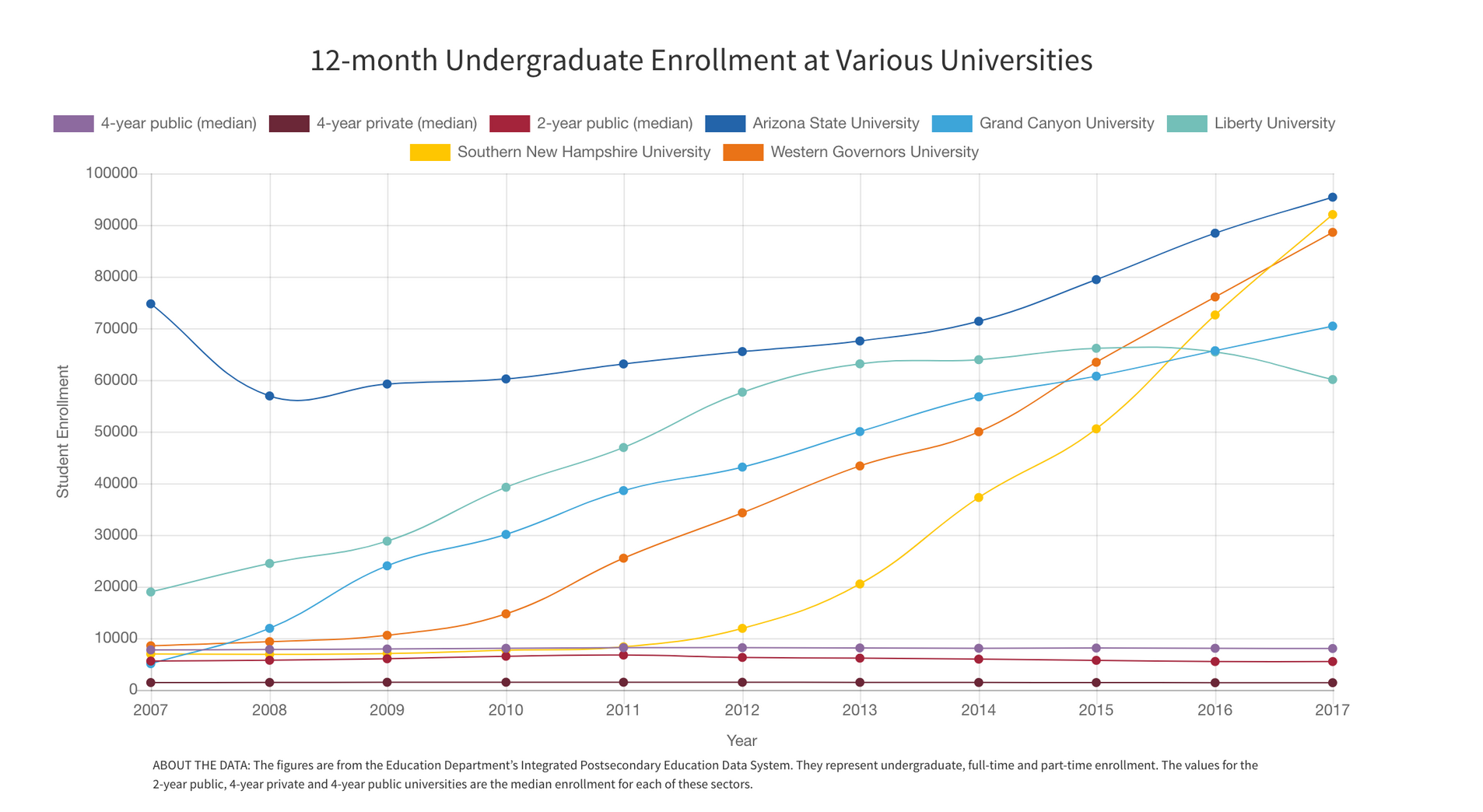Note this post was probably published earlier than the date listed. What’s on record is when I ported this from a squarespace to a wordpress site.
The Rise of the Mega-University
The gist is that a few players (some traditional universities branching out online, some purely virtual) are achieving massive enrollment numbers.
Graph contained in the article.

They are doing this mainly by serving working adults with some or no college that want to expand their career prospects.
“the higher-education value proposition is all around the most inexpensive education and certification that will get me a job,” says Susan Grajek, vice president for communities and research at Educause
and
“For our adult learners online, it’s ‘Get me a credential that will get me unstuck, that will get me a better job,’ ”
This credential aspect is also what seems to have given the traditional universities that offer online programs an advantage over the Courseras/Udacities/Udemys of the world.
At one point, free online education was supposed to pose an existential threat to brick-and-mortar institutions — remember massive open online courses? But the MOOC revolution collapsed in part because the courses typically didn’t connect to credentials that employers, or students, valued.
My biggest question for these online programs is whether employers recognize the credentials. How do I value a full bachelor of science in economics offered online? Do these degrees actually get working adults “unstuck” from their current position? The tuition ain’t cheap either. Fees for an online academic year at Arizona State are $12,702. University of Oregon’s yearly in-state tuition is $11,898. Given, you don’t have to pay for room and board while pursuing an online degree, but I assume you’re going to be living and eating somewhere while doing schoolwork. At least for full bachelor’s, it seems like your local state university is still a relatively good economic deal.
I also think it’s interesting how we’re seeing online education specialize. It seems like some of the fears surrounding the death of the university via the internet are overblown, as digital degrees are most useful as tools of economic advancement to those already in the workforce rather than substitutes for what a high schooler should do after graduation. Traditional universities shouldn’t get comfortable though. Just because a competitor is successful in a demographic other than your own doesn’t mean they can’t enter it one day. I personally believe the 4-year live-on-campus-talk-with-real-people-go-to-class model will always have superior potential, but some institutions act like they want it to go unrealized.
The physical, tangible aspect is what will always separate ASU Online from University of Arizona, Tuscon for example. Brick-and-mortar institutions should invest real money into getting undergraduates talking among themselves and with their professors. Being able to have free and spontaneous exchanges with your teachers and peers has immeasurable value in the idealistic intellectual sense, and the professional.